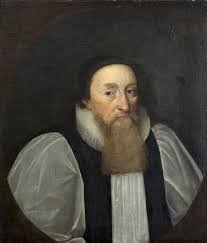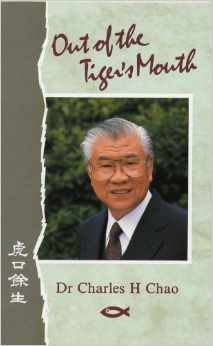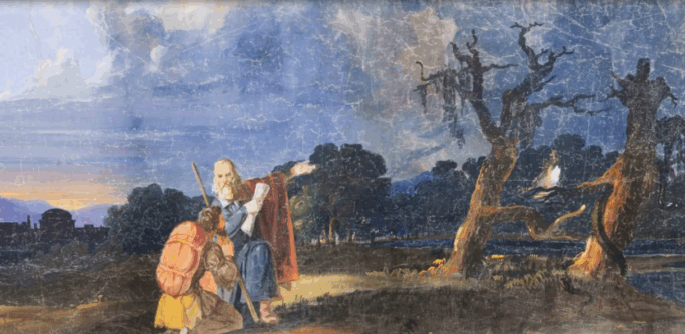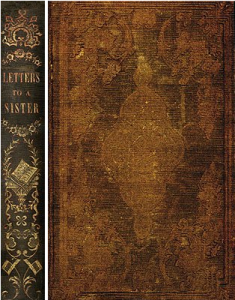 At two o’clock in the afternoon on Friday, August 22, 1651, the great Puritan minister Christopher Love ascended the platform of the scaffold at Tower Hill, London. He was accompanied by fellow ministers, Thomas Manton, Simeon Ashe, and Edmund Calamy. His life was to be cut short at 33 years of age due to alleged involvement with a plan to raise money for the restoration of the monarchy, a charge Love denied. Believing that his death would glorify God, Christopher Love’s last prayer and final words provide a powerful perspective. He said, “I do more good by my death than by my life, and glorify God more in my dying upon a scaffold than if I had died of a disease upon my bed.”
At two o’clock in the afternoon on Friday, August 22, 1651, the great Puritan minister Christopher Love ascended the platform of the scaffold at Tower Hill, London. He was accompanied by fellow ministers, Thomas Manton, Simeon Ashe, and Edmund Calamy. His life was to be cut short at 33 years of age due to alleged involvement with a plan to raise money for the restoration of the monarchy, a charge Love denied. Believing that his death would glorify God, Christopher Love’s last prayer and final words provide a powerful perspective. He said, “I do more good by my death than by my life, and glorify God more in my dying upon a scaffold than if I had died of a disease upon my bed.”
Prior to his execution, Love prayed for his accusers, for the Church, for England and Scotland to be one, and for the friend who was to be executed after him.
His final prayer offers timeless insight and encouragement:
Continue reading “Christopher Love: Living and Dying for the Glory of God” →
 Bishop Joseph Hall marveled at the “world of wit” packed onto library shelves, yet Puritan John Flavel takes this imagery further, pointing us to a library far more enduring than wit—a library of God’s own attributes.
Bishop Joseph Hall marveled at the “world of wit” packed onto library shelves, yet Puritan John Flavel takes this imagery further, pointing us to a library far more enduring than wit—a library of God’s own attributes.


 We often talk about the necessity of spiritual growth, but we rarely discuss the logistics of the battle. I came across a one-year reading plan of William Gurnall’s
We often talk about the necessity of spiritual growth, but we rarely discuss the logistics of the battle. I came across a one-year reading plan of William Gurnall’s 




 There is a unique magic in holding a book that has survived for over 150 years. I love antiquarian books. Not only were they built to last for posterity, but they were also made with remarkable beauty, often adorned with gold engraving, lovely decoration, and sturdy bindings that serve as a testament to the value society once placed on the written word.
There is a unique magic in holding a book that has survived for over 150 years. I love antiquarian books. Not only were they built to last for posterity, but they were also made with remarkable beauty, often adorned with gold engraving, lovely decoration, and sturdy bindings that serve as a testament to the value society once placed on the written word. At two o’clock in the afternoon on Friday, August 22, 1651, the great Puritan minister Christopher Love ascended the platform of the scaffold at Tower Hill, London. He was accompanied by fellow ministers, Thomas Manton, Simeon Ashe, and Edmund Calamy. His life was to be cut short at 33 years of age due to alleged involvement with a plan to raise money for the restoration of the monarchy, a charge Love denied. Believing that his death would glorify God, Christopher Love’s last prayer and final words provide a powerful perspective. He said, “I do more good by my death than by my life, and glorify God more in my dying upon a scaffold than if I had died of a disease upon my bed.”
At two o’clock in the afternoon on Friday, August 22, 1651, the great Puritan minister Christopher Love ascended the platform of the scaffold at Tower Hill, London. He was accompanied by fellow ministers, Thomas Manton, Simeon Ashe, and Edmund Calamy. His life was to be cut short at 33 years of age due to alleged involvement with a plan to raise money for the restoration of the monarchy, a charge Love denied. Believing that his death would glorify God, Christopher Love’s last prayer and final words provide a powerful perspective. He said, “I do more good by my death than by my life, and glorify God more in my dying upon a scaffold than if I had died of a disease upon my bed.”